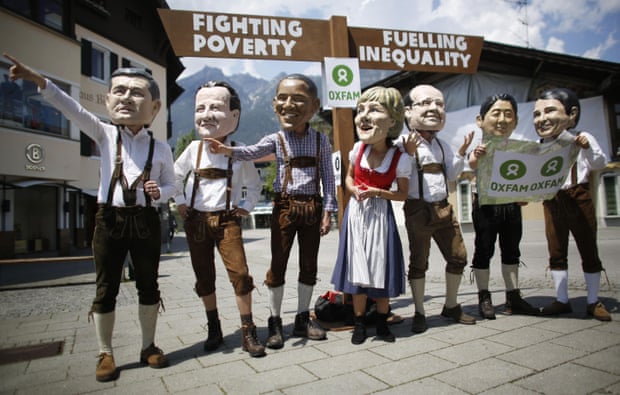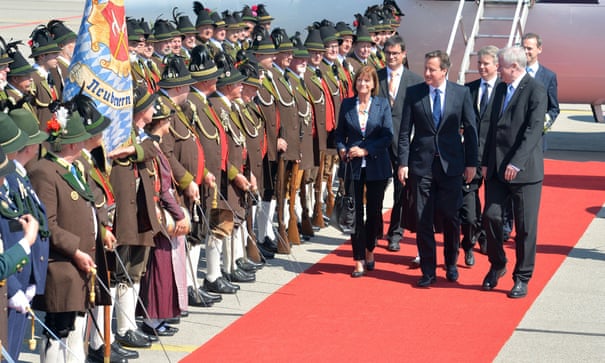OVERVIEW
The G7 is a group of seven countries with advanced economies. Members include the United States, Canada, France, Germany, Italy, Japan and the United Kingdom. These countries meet annually to discuss various issues such as energy policy and International security but the main aim of the comity is to discuss Global Economic Governance. The G7 was formally known as the G8 until 2014 when Russia was suspended from the comity because of the war in Crimea and tensions rising in Ukraine.Unlike The EU and The UN, The G7 is not a formal institution with a charter is instead has a Presidency that rotates annually among the member states. Whomever is holds the current Presidency is responsible for arranging logistics and setting the agenda. Ministers and envoys prepare policy initiatives at meetings which precede to the annual summit of political leaders.
G7 2015
Obama pressed the European leaders show more resolve to maintain sanctions against Russia when it comes to Ukraine. Obama rang the Ukrainian President, Petro Poroshenko, and visited Ukraine on the way to the summit in a sign of solidarity.
Merkel had ensured that the communique at this summit included a long-term aim to limit global warming to below two degrees. Merkel wanted countries to commit to the Green Climate Fund, which is aiming for $100 billion by 2020. Germany recently doubled its contribution to $8 billion and Merkel has personally called on all industrial countries to contribute. Doubts remain, however, about Obama’s ability to get any tough climate change agreement through Congress, as he has been examining ways to circumvent the legislature.
The summit is also discussed the fight against Islamic State, and the following Monday a meeting between Obama and the prime minister of Iraq, Haider al-Abadi was held.
On the economy, Obama reassured allies that Congress will back the Trans-Pacific Partnership, a massive deal spanning the Pacific Rim.
Other Topics of the summit included improving labour rights for textile workers, fighting antibiotics resistance and cleaning up oceanic pollution.
CRITICISM OF THE G7

The G7 is sometimes criticised because it does not do enough to solve some global problems such as third World Debt, global warming and the AIDS epidemic: due to strict medicine patent policy and other issues related to globalization. In Unravelling Global Apartheid, the political analyst Titus Alexander described the G7 as the 'cabinet' of global minority rule, with a coordinating role in world affairs.

